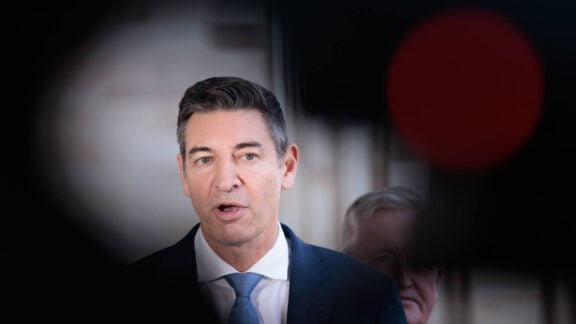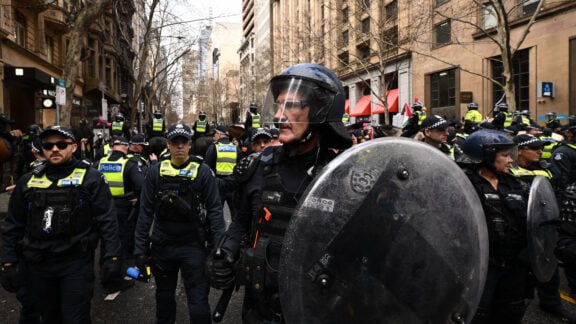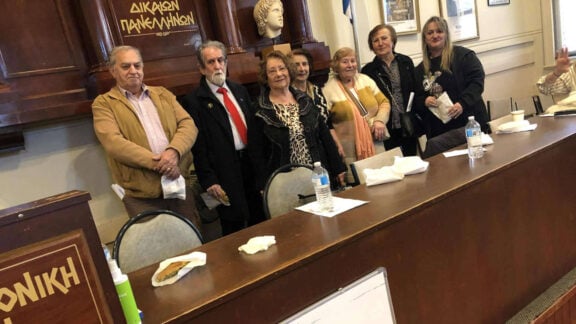National anniversaries such as Australia Day find most of us celebrating the public holiday on the 27th rather than the actual day of January 26th.
Days like this are supposed to be symbolic moments of collective reflection and self-awareness. If there is a symbolic moment in our national narrative and consciousness it is not Australia Day, but Anzac Day. Australia Day marks the beginning of the white colonisation of the continent, while Anzac Day is considered to be the beginning of building the Australian national identity through conflict.
Regardless of how Australia Day is perceived by most of us, the occasion can still be an opportunity to learn and understand more about the country that shelters the lives, dreams and expectations of millions of people from all walks of life and from different cultures around the world.
A landmark book that can significantly enhance our understanding of Australia is the 2012 published collection The Words that Made Australia. This book, co-edited by La Trobe University Professor of Politics Robert Manne and by Chris Feik, editor of Quarterly Essay, associate editor of The Monthly and publisher at Black Inc. Books, is an anthology of 30 original intellectual works since Federation that have, one way or another, defined key aspects of the Australian condition.
Author Miles Franklin, the Australian daughter of the Southern Cross and child of the mighty bush; journalist Keith Murdoch, Rupert’s father, with his Gallipoli letter to the then Australian Prime Minister Andrew Fisher that laid the foundation for the rise of the Anzac legend; English novelist D.H. Lawrence and his impressions from Australia in the 1920s, are only some of the important thinkers whose influential works are included in this volume.
Landmark works of others such as historian W.H. Hanckock’s on the mediocrity in Australia; A.A. Phillips’ on the ‘cultural cringe’; R.W. Menzies’ on the forgotten people, namely the middle class of Australia; Donald Horne who coined the term ‘lucky country’; social scientist Hugh Stretton’s, who talked about Australia as a suburb, and anthropologist W.E. Stanner’s who introduced a new way of seeing Aboriginal Australia, are also included.
This collection of works that attempts to define the diachronically fundamental themes of the Australian identity has not been received favourably by the readers or the Australian public.
A Google search will find that only one lengthy review by James Button at The Monthly was ever published, and a few months after the publication of the book major bookstores were selling it at almost a third of its original recommended retail price.
However, to know where we are going as a people, we have to know where we have been – The Words that made Australia is, in my opinion, one of the most useful tools available to Australians if they wish to comprehend the Australian condition in depth and straight from the ‘horse’s mouth’. It is a worthy publication that allows you to think long and hard about the past, present and future of this country.
It is also a book that allows you, even with a ‘by the way’ concluding contribution of a Lebanese Christian immigrant, anthropologist Ghassan Hage, to connect with Australian culture from an non-Anglo point of view by infusing part of the NSW landscape with the fig, olive and pomegranate trees – a legacy of the Mediterranean experience.
In times where long term thinking is not part of the dominant public discourse in the country, or for example, when the impact of the greenhouse effect is denied or ridiculed by conservative governments and commentators, this book remains as a useful reminder about the big issues of the past and the importance of moving forward by knowing and by taking into consideration the hard core of ourselves.
If Australia is to continue to be a role model for the entire western world with wealth, liberties and a social welfare net that might cater, even partially, for the needs of the underprivileged, then self-awareness of the people as a nation is of the utmost importance.
Self-awareness and self-reflection on a national scale, not only on behalf of the ruling elites, may be the best course of action if we are to sustain the lucky country in a world of turmoil and increasing inequality.
Advertisement
Reflections on Australia Day
National anniversaries such as Australia Day find most of us celebrating the public holiday on the 27th rather than the actual day of January 26th






